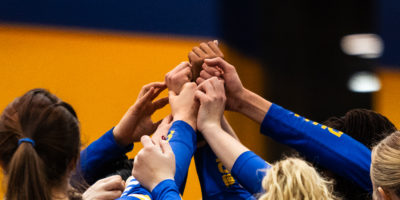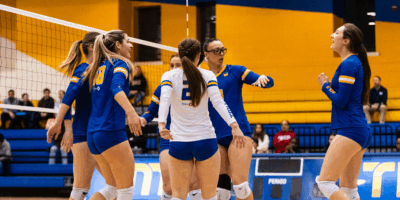By Alex Wright
Ryerson professors work more and are paid less than faculty at other Ontario universities, according to the Ryerson Faculty Association (RFA), and they’ve been trying to work out a better deal. But getting a contract that treats them as well as their colleagues at other schools, though, is proving more difficult than they expected.
The RFA, represented by Ian Sakinofsky, began negotiations with Ryerson’s Board of Governors, represented by Michael Dewson, in April to replacing the old collective agreement before it expired on June 30. But now, after five months of negotiations and 28 meetings, there is still no end in sight.
These delays have cost Ryerson faculty more than time. Because the expired contract hasn’t yet been replaced, it remains in effect and profs haven’t received the salary raises that were expected on July and Sept. 1.
“It could go on forever, I suppose,” said Dave Mason, head of the RFA. “But I don’t think we’d have much stomach for that.”
Although Ryerson professors can’t strike under their current agreement, Mason said that they will go into arbitration if the negotiations continue to be unproductive.
The top issue is faculty workload, which Mason said is the heaviest in the province.
“I don’t see any reason why our faculty should be expected to work 10 or 15 more hours a week than faculty at other universities,” he said.
There is also pressure for professors to produce research.
“Look around at your faculty members, the ones with the haggard faces probably don’t have tenure yet because they’re working 60-70 hours a week trying to get their [research] done and their teaching done,” Mason said. “Sorry, I thought 60 hour work weeks went out about 120 years ago.”
Despite the workloads, salaries of Ryerson profs are still below the median and well below other Toronto universities. Salary is the last issue discussed in negotiations, but Mason said there is a fair difference in the initial salary proposals from both sides.
Other unresolved issues deal with hiring and promotion procedures as well as problems with the faculty survey. The old in-class survey didn’t allow enough space for comments, but last year’s online survey garnered response rates as low as ten per cent of students per class. The RFA has come up with a new proposal for the surveys but, “based on how much it’s been ‘our way or the highway’ so far, I’m not optimistic,” Mason said.
There have been a few successes though. Progress has been made on the issue of program chairs and directors being expected to fulfill both faculty and management duties, one of the main issues when negotiations started. There has been some success in relieving time constraints for marking essays and exams, and both sides are in agreement about abolishing promotions based on merit, which was accused of unfairly favoured white males.
Meanwhile, professors remain in the dark about their future agreement.
“I don’t think many people know what’s going on,” said Daniel Rubenson, assistant politics professor. “Nobody does have any real information.”
Sakinofsky, who is negotiating for his sixth time this year, was unable to comment because of his role in the negotiations. Dewson also declined to comment during the ongoing negotiations.











Leave a Reply